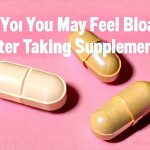Protein shakes have become incredibly popular in recent years, fueled by fitness trends and busy lifestyles. They offer a convenient way to supplement protein intake, supporting muscle growth, recovery, and overall wellness goals. However, alongside their benefits, many individuals report experiencing unpleasant digestive symptoms like bloating, gas, or indigestion after consuming them. This often leads to questioning whether these seemingly healthy supplements are actually contributing to discomfort rather than enhancing well-being. It’s a common concern, as the convenience of protein shakes can be overshadowed by unwanted side effects, prompting people to reassess their dietary choices and supplementation strategies.
The digestive system is a complex network, and introducing new elements – even those considered ‘healthy’ – can sometimes disrupt its delicate balance. Protein itself requires significant digestion, and the specific ingredients found in many protein powders, combined with individual sensitivities or pre-existing conditions, may contribute to these issues. Understanding why bloating and indigestion occur after consuming protein shakes isn’t always straightforward, as it involves a confluence of factors relating to the shake’s composition, an individual’s digestive capacity, and how they incorporate the supplement into their overall diet. This article will delve into the common causes, potential solutions, and ways to minimize discomfort when using protein shakes.
Understanding the Culprits: What in Protein Shakes Can Cause Bloating?
The ingredients list of a typical protein shake can be surprisingly long, and several components may contribute to digestive distress. It’s rarely just the protein itself causing problems; often it’s a combination of factors that trigger symptoms. Whey protein concentrate, while effective for muscle building, contains lactose – a sugar many individuals struggle to digest, leading to gas and bloating. Similarly, soy protein can be difficult for some to process due to its complex carbohydrate structure. Even plant-based proteins like pea or rice protein, though generally easier on the stomach, contain fiber and compounds that can cause temporary digestive discomfort in sensitive individuals.
Beyond the core protein source, many shakes include additives designed to enhance taste or texture. These often include artificial sweeteners (like sucralose or aspartame), sugar alcohols (like sorbitol or xylitol), gums (guar gum, xanthan gum), and emulsifiers (lecithin). All these ingredients can be problematic for some people. Sugar alcohols are notorious for causing bloating due to their incomplete absorption in the small intestine; they essentially ferment in the large intestine, producing gas as a byproduct. Gums, while used to thicken shakes, aren’t easily digested and can contribute to feelings of fullness and discomfort. Artificial sweeteners, while calorie-free, have also been linked to gut microbiome imbalances in some studies.
Finally, it’s important to remember that the way a shake is prepared plays a role too. Mixing protein powder with milk (dairy or non-dairy) adds another layer of potential digestive challenges depending on lactose intolerance or sensitivities to specific plant-based milks. Using large volumes of liquid or combining the shake with other foods simultaneously can also overwhelm the digestive system, leading to bloating and indigestion. Identifying the specific culprit often requires a process of elimination and careful observation. If you suspect an underlying stomach condition, learning about k31.9 stomach might be helpful.
Identifying Your Personal Triggers
Pinpointing exactly what’s causing your bloating is crucial for finding relief. A systematic approach can help isolate the problem ingredient or combination.
- Keep a food diary: Track everything you eat and drink, including protein shakes, noting any digestive symptoms that follow. Be specific about the shake ingredients, milk type used, and time of consumption.
- Experiment with different protein sources: Try switching from whey concentrate to isolate (which has less lactose), or explore plant-based options like pea, rice, or soy protein. Observe if swapping proteins makes a difference.
- Read labels carefully: Pay attention to the full ingredient list, looking for artificial sweeteners, sugar alcohols, and gums. Choose shakes with minimal additives whenever possible.
Consider also that timing can matter. Consuming a large protein shake immediately before intense exercise might exacerbate digestive issues as blood flow is diverted away from the gut towards working muscles. It’s often better to consume protein after exercise or at a separate time when digestion isn’t competing with physical exertion. If symptoms persist, consider consulting with a registered dietitian or healthcare professional for personalized guidance and to rule out any underlying medical conditions. Understanding functional bloating can also help you narrow down the source of your discomfort.
The Role of Gut Health in Protein Shake Tolerance
A healthy gut microbiome is essential for efficient digestion and nutrient absorption. An imbalance in gut bacteria (dysbiosis) can lead to increased sensitivity to certain foods, including those found in protein shakes. Probiotics, beneficial bacteria that aid digestion, are often lacking in modern diets. This deficiency can make it harder to break down complex proteins or digest additives present in protein powders.
- Consider incorporating probiotic-rich foods: Yogurt (with live and active cultures), kefir, sauerkraut, kimchi, and kombucha can all help support a healthy gut microbiome.
- Focus on prebiotic intake: Prebiotics are fibers that feed beneficial bacteria in the gut. Foods like bananas, onions, garlic, asparagus, and oats are excellent sources.
- Reduce stress levels: Chronic stress can negatively impact gut health. Incorporate stress management techniques like meditation, yoga, or deep breathing exercises into your routine.
Furthermore, individuals with pre-existing digestive conditions like Irritable Bowel Syndrome (IBS) or Small Intestinal Bacterial Overgrowth (SIBO) may be more prone to bloating and indigestion after consuming protein shakes. These conditions often involve heightened sensitivity to certain foods and impaired digestion, making it even more important to identify personal triggers and choose shake formulations carefully. The connection between bloating and gut health is significant.
Strategies for Minimizing Bloating & Improving Digestion
Even if you’ve identified a potential trigger, there are several strategies you can employ to minimize bloating and improve digestive comfort when using protein shakes:
- Choose simpler formulas: Opt for protein powders with fewer ingredients and minimal additives. Look for options that specifically state “no artificial sweeteners” or “low FODMAPs”.
- Dilute your shake: Mixing the protein powder with more water or a low-FODMAP milk alternative (like almond milk) can reduce its concentration and ease digestion. Avoid excessive liquid, though, as it may affect taste and texture.
- Sip slowly instead of gulping: Drinking quickly can introduce excess air into your digestive system, contributing to bloating.
- Combine with digestive enzymes: Some individuals find relief by adding a digestive enzyme supplement specifically designed for protein digestion to their shake. These enzymes help break down proteins more efficiently, reducing the burden on the gut. (Note: consult a healthcare professional before taking any supplements.)
If you experience reflux alongside bloating, it’s worth investigating reflux from water. Furthermore, consider how your dietary choices might contribute to brain fog and bloating.
Ultimately, there’s no one-size-fits-all solution. The key is to listen to your body, experiment with different options, and find what works best for you. Protein shakes can be a valuable part of a healthy lifestyle, but they shouldn’t come at the cost of digestive comfort. Planning ahead when avoiding bloating on special occasions is also important to keep in mind. Finally, remember that acid reflux affects sleep quality, so addressing digestive issues can contribute to better rest.


















